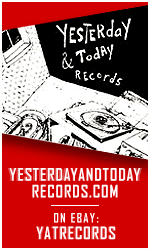
 In the December issue of Mix, mastering engineer Bob Ludwig chats with editor Sarah Jones about changing technologies, the loudness wars, and more than four decades of musical inspiration.
In the December issue of Mix, mastering engineer Bob Ludwig chats with editor Sarah Jones about changing technologies, the loudness wars, and more than four decades of musical inspiration. One focus of our December mastering issue is preparing for a variety of release formats. Are you seeing an increase in particular formats, such as vinyl?
I did vinyl mastering my whole career. Several years ago I sold my lathe; I sold it to Sony, and now I’ve heard they’ve just sold it to Sterling.
Gateway was the first independent mastering studio to be open without a working lathe, because we didn’t need it. In ’93, when we opened up, it really looked like LPs were just going to die completely. And then it was kind of hanging in there, so at some point we assembled the lathe that we had bought, and we cut a bunch of records. But back then, the record companies weren’t quality-controlling it. We did this one record, and I never got a test pressing or anything like that, and Michael Fremmer, who’s an analog vinyl guy, called me up and said, “Gee, Bob, I’ve got this pressing that says you did it, and it doesn’t sound like you did it; it’s kind of dull sounding.” I said, “Wow, well, I never heard what happened,” and I got a copy of the pressing, and sure enough the thing did come out dull. That’s the problem with vinyl; lots can go wrong with it. So I called the record company and said, “Who approved this?” and she said, “We don’t even have a turntable in our A&R department.” I said, “So nobody listened to it before it was pressed?” And she said, “No, the UK department listened to it,” and I said, “Well, what were they comparing it to?” And she said, nothing, it “just sounded good” to her. Literally, at that moment, I decided to sell the lathe. Because vinyl’s so difficult, as far as quality control goes, that I didn’t want something with my name on it out there that wasn’t quality controlled. Now that there’s been this kind of funny resurgence in vinyl, the record companies are paying more attention to it.
When we do vinyl projects, we just send equalized masters to whomever the record company is using or to certain disk cutters that we like—with the approval of the record company—so they cut from high-resolution files. So, theoretically, the vinyl releases of most of our stuff should have another octave of top end on them that the CD doesn’t have, even though it’s in a supersonic area. [Laughs]
What do you think is driving the resurgence in vinyl? I’d like to think it’s a backlash against…
Supercompressed MP3s?
I’d like to think it is.
Well, I think part of it is. The kids who have grown up in this generation have never experienced having a vinyl record in their hands, with that big artwork; it’s so tactile, so physical. It’s really such a different kind of a creature than a cold MP3 file. You know, if it’s coming over an Internet connection and it goes in your ears; there’s nothing to feel with your hands. A lot of it might be that.
(Read the rest with the Mastering Master right here.)





















No comments:
Post a Comment